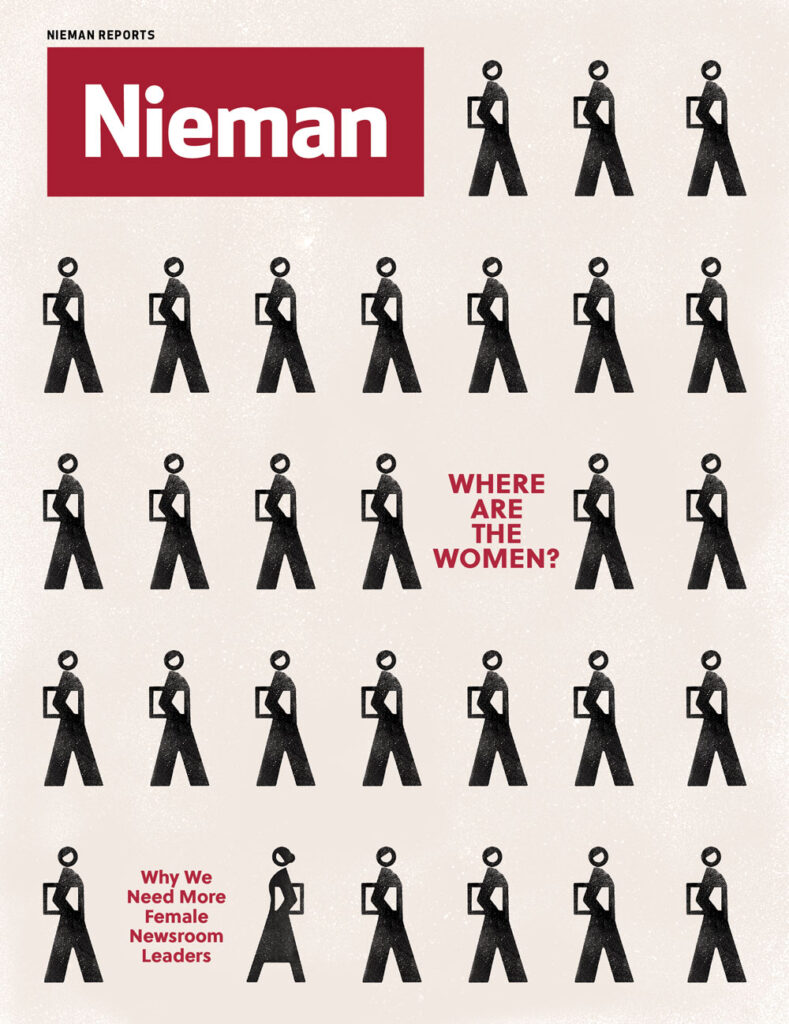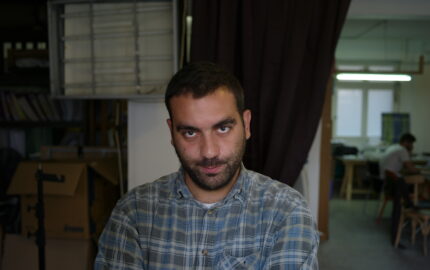Iwas 5 or 6 years old when my mother, a great lover of Nigerian folklore, told me a story from one of the oldest tribes in my country. In my mother’s telling, the market woman named Emotan became a princess who saved the Benin kingdom from ruin. Emotan was brave, involved, and relevant to her people, and I wanted to be just like her.
From my father, I learned a very different philosophy. His was based on what I now know is the “Gestalt prayer,” and it was printed in bright yellow letters on a 3-foot-tall black, suede-covered plaque that hung in our living room.
I do my thing and you do your thing
I am not in this world to live up to your expectations
And you are not in this world to live up to mine
You are you and I am I
My father, an officer in the Nigerian army, believed an individual must focus squarely on his feelings and needs. He did not encourage engagement in community matters.
Back then, writing was my escape, a way to vent my conflicts and frustrations. I earned a degree in geography and performed the year of service required of every university graduate. I was sent to teach high school geography in a remote village. Having grown up in relatively spacious quarters on military bases and attended excellent schools, I had never spent time in a typical Nigerian village. I had not realized that mine was a life of relative luxury, radically different from that of the majority of Nigerians.
On my first day as a teacher I walked into a class of about 40 females ages 14 to 20. They rose up and said, “Good morning, teacher.” They seemed excited. I wrote the word “geography” on the blackboard and proceeded to tell them that we would be talking about the earth. I said, “The earth is in motion, moving very fast around the sun.” They laughed.
These girls and young women were not stupid; they had strong ideas about their lives but they had very little formal education. Their parents needed them to help out on the farm or at home. The circumstances of their lives seemed to conspire to keep them ignorant and uneducated.
Yet what struck me most was the hopelessness of it all. No one cared, no one was going to hear their stories, and most likely there would be no significant improvements in their lives.
I wish I could say that I had an impact on their lives. I hope I did. However, that experience reaffirmed the defining logic of my life: to be involved, to understand, and to be relevant.
After my year of service, I was hired as a reporter-in-training at BusinessDay. That was over six years ago. I write about corruption, development issues, and public accountability. Some people say that a journalist’s job is to present the facts and the truth will take care of itself. But what do you do when that doesn’t happen?
A couple of years ago, I found myself sitting opposite a public relations official for a cabinet minister, who I had written about only a couple of days before highlighting several instances over the years of failure in the sectors she oversaw. This PR man said, “That was a well-written piece you did but can you tell me what difference you have made?” He then suggested that I would remain just another poor journalist if I did not tweak the narrative to suit them—a common practice with journalism in Nigeria.
In my country corruption is practiced with impunity and the people seem to have lost the ability to be shocked by fresh revelations of fraud or failure. Leaders are not held accountable, and most journalists have become unmotivated and even complicit. So, how do you shame the shameless and provoke Nigerians to be responsive? These are some of the questions facing me now.
Journalism that stimulates debates isn’t enough because the powerful do not respond to debates. They respond to an informed people who are able to show them where power truly lies. While I do not suggest that journalists become activists, I believe journalists must enable the process of change. Thus I fear I am not a journalist content to just report the facts and walk away. Maybe that makes me a bad journalist. I don’t think so. But in this regard, I do my thing and you do your thing. And I refuse to be limited by anyone else’s expectations.
Ameto Akpe, a 2014 Nieman Fellow, is in charge of online news for BusinessDay
From my father, I learned a very different philosophy. His was based on what I now know is the “Gestalt prayer,” and it was printed in bright yellow letters on a 3-foot-tall black, suede-covered plaque that hung in our living room.
I do my thing and you do your thing
I am not in this world to live up to your expectations
And you are not in this world to live up to mine
You are you and I am I
My father, an officer in the Nigerian army, believed an individual must focus squarely on his feelings and needs. He did not encourage engagement in community matters.
Back then, writing was my escape, a way to vent my conflicts and frustrations. I earned a degree in geography and performed the year of service required of every university graduate. I was sent to teach high school geography in a remote village. Having grown up in relatively spacious quarters on military bases and attended excellent schools, I had never spent time in a typical Nigerian village. I had not realized that mine was a life of relative luxury, radically different from that of the majority of Nigerians.
On my first day as a teacher I walked into a class of about 40 females ages 14 to 20. They rose up and said, “Good morning, teacher.” They seemed excited. I wrote the word “geography” on the blackboard and proceeded to tell them that we would be talking about the earth. I said, “The earth is in motion, moving very fast around the sun.” They laughed.
These girls and young women were not stupid; they had strong ideas about their lives but they had very little formal education. Their parents needed them to help out on the farm or at home. The circumstances of their lives seemed to conspire to keep them ignorant and uneducated.
Yet what struck me most was the hopelessness of it all. No one cared, no one was going to hear their stories, and most likely there would be no significant improvements in their lives.
I wish I could say that I had an impact on their lives. I hope I did. However, that experience reaffirmed the defining logic of my life: to be involved, to understand, and to be relevant.
After my year of service, I was hired as a reporter-in-training at BusinessDay. That was over six years ago. I write about corruption, development issues, and public accountability. Some people say that a journalist’s job is to present the facts and the truth will take care of itself. But what do you do when that doesn’t happen?
A couple of years ago, I found myself sitting opposite a public relations official for a cabinet minister, who I had written about only a couple of days before highlighting several instances over the years of failure in the sectors she oversaw. This PR man said, “That was a well-written piece you did but can you tell me what difference you have made?” He then suggested that I would remain just another poor journalist if I did not tweak the narrative to suit them—a common practice with journalism in Nigeria.
How do you shame the shameless and provoke Nigerians to be responsive? These are some of the questions facing me now
In my country corruption is practiced with impunity and the people seem to have lost the ability to be shocked by fresh revelations of fraud or failure. Leaders are not held accountable, and most journalists have become unmotivated and even complicit. So, how do you shame the shameless and provoke Nigerians to be responsive? These are some of the questions facing me now.
Journalism that stimulates debates isn’t enough because the powerful do not respond to debates. They respond to an informed people who are able to show them where power truly lies. While I do not suggest that journalists become activists, I believe journalists must enable the process of change. Thus I fear I am not a journalist content to just report the facts and walk away. Maybe that makes me a bad journalist. I don’t think so. But in this regard, I do my thing and you do your thing. And I refuse to be limited by anyone else’s expectations.
Ameto Akpe, a 2014 Nieman Fellow, is in charge of online news for BusinessDay



